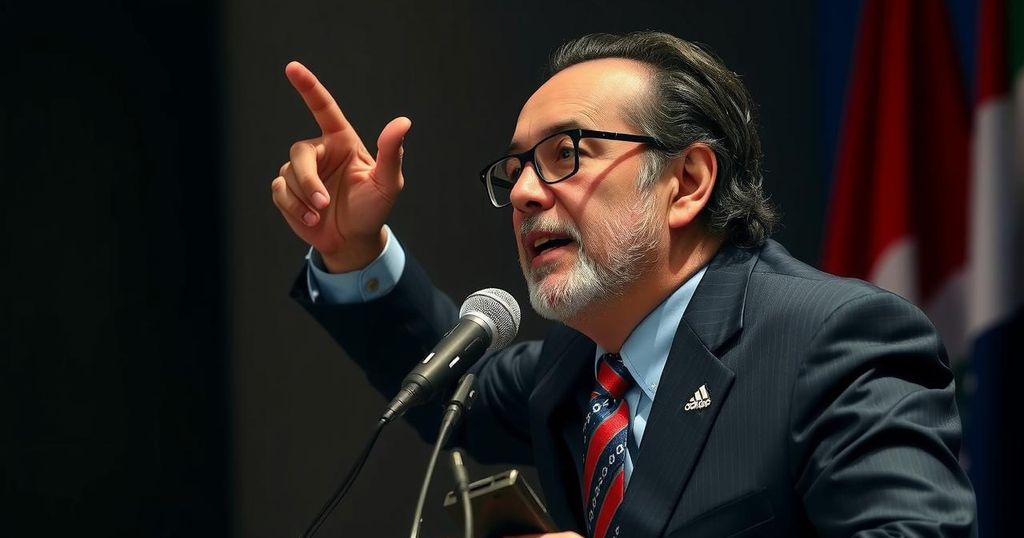Yamandú Orsi Wins Presidential Race, Signaling Political Shift in Uruguay
Yamandú Orsi has claimed victory in Uruguay’s presidential runoff, defeating Álvaro Delgado of the ruling conservative coalition. With approximately 49% of the vote, Orsi vows to unite the nation and address pressing issues such as childhood poverty and economic growth. His moderate agenda reflects lessons learned from previous successful administrations, marking a shift in the political landscape as Uruguay reevaluates its governance in response to citizen discontent.
In a significant political shift, Uruguay’s leftist candidate, Yamandú Orsi, emerged victorious in a closely contested presidential runoff, defeating the ruling conservative coalition led by Álvaro Delgado. This election marks a pivotal change in leadership within a broader trend of voters rejecting incumbent parties across the globe. Orsi, a former history teacher and two-term mayor, garnered approximately 49% of the vote compared to Delgado’s 46%, with record voter turnout nearing 90%. Orsi characterized his victory as a commitment to unite a divided electorate and prioritize recovery from economic downturns and social issues, specifically addressing childhood poverty, which currently affects 25% of children.
Despite his leftist affiliations, Orsi’s agenda leans towards moderate reform, reflecting on previous successful policies implemented by his Broad Front coalition between 2005 and 2020. He plans to reinvigorate Uruguay’s critical agricultural sector through incentives, along with implementing social security reforms. His approach is marked by fiscal prudence and consensus-building, aligning with the need for stability within the nation. Orsi’s anticipated presidency may also challenge trade agreements pursued by his conservative predecessor with China, reflecting a shift in foreign policy as he prioritizes regional trade alliances.
Yamandú Orsi’s victory in the 2024 Uruguayan presidential election is emblematic of a wider trend of political dissatisfaction among voters, particularly in post-pandemic contexts. This defeat of the incumbent center-right coalition, which had ruled since 2019 under President Luis Lacalle Pou, reflects a growing desire for change among the populace. The election aligns with a series of global political shifts where voters, frustrated with economic stagnation and rising crime rates, are increasingly turning to anti-incumbent candidates. Historically, Uruguay has demonstrated a stable political environment, characterized by significant economic growth and pioneering social reforms, particularly during the previous Broad Front administrations. In this election, Orsi’s moderate platform promises to build upon existing successes while tackling pressing issues.
Yamandú Orsi’s election as Uruguay’s president marks a notable shift towards leftist governance in a nation known for its pragmatic approach to politics. His commitment to national unity, social reform, and economic revitalization resonates amid global tendencies favoring anti-establishment sentiment. As Orsi prepares to assume office in March 2025, his challenge will be to effectively address the prevailing economic and social issues while honoring the democratic values and stability that define Uruguay.
Original Source: time.com




Post Comment